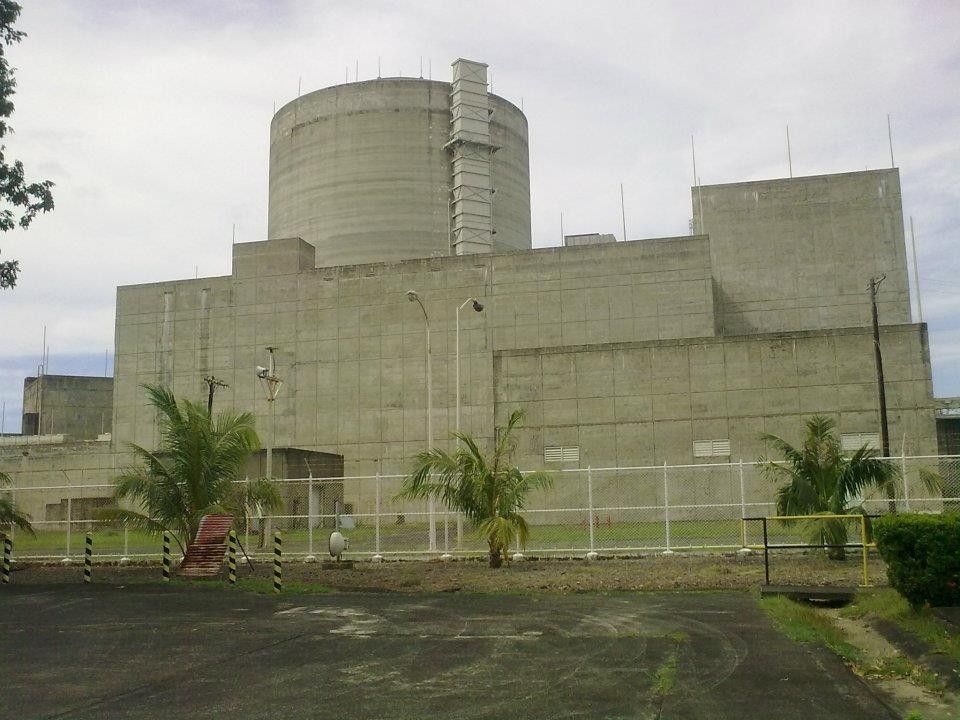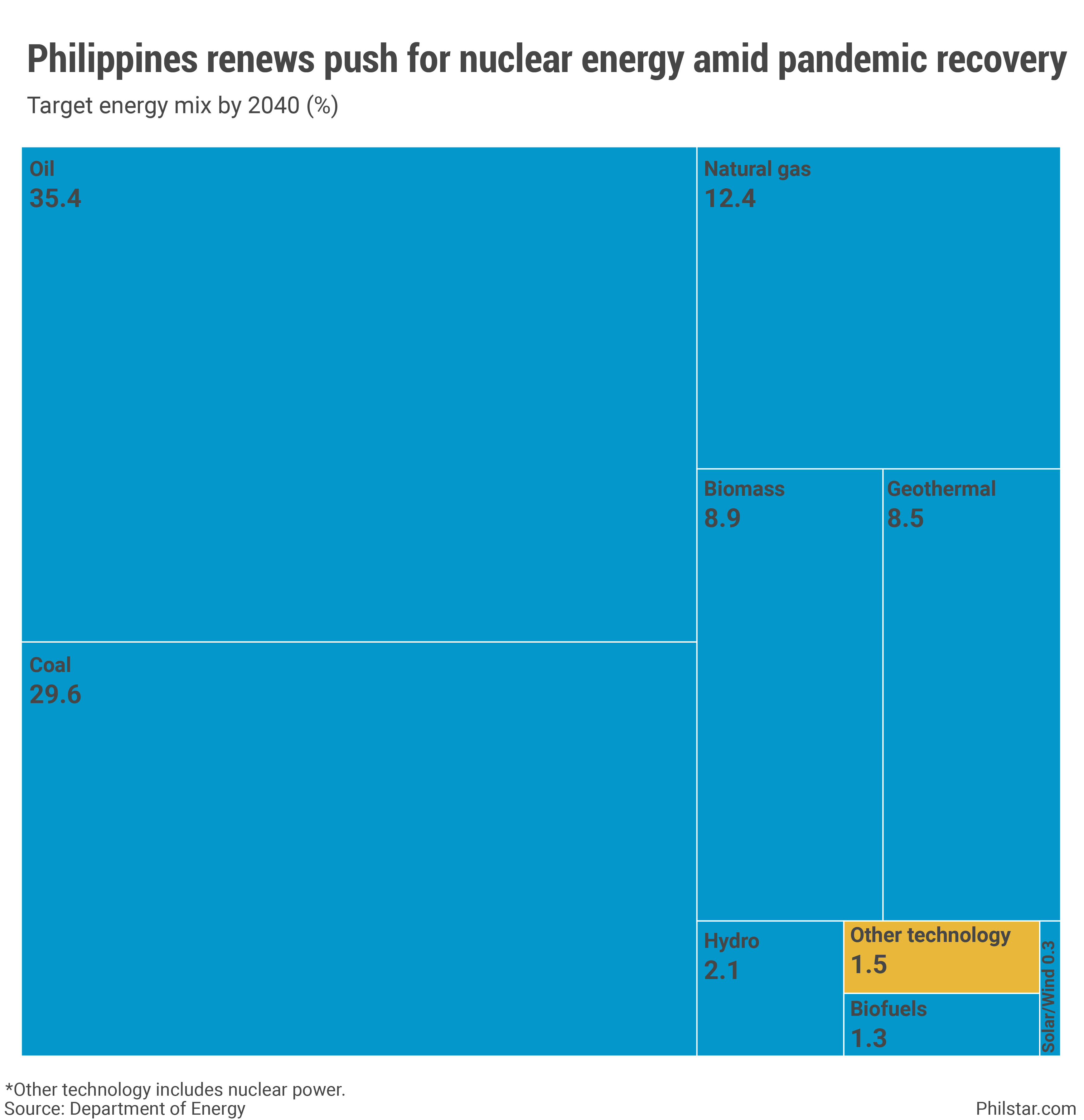Duterte revives nuclear energy push

MANILA, Philippines (UPDATE 1 2:55 p.m., July 29) — The Philippines is reviving a long-stalled push for nuclear energy under the Duterte administration, a controversial policy that has torn people between meeting rising energy needs and potential dangers of running nuclear plants.
Under Executive Order No. 116 released Wednesday, President Rodrigo Duterte created the Nuclear Energy Program Interagency Committee to examine the feasibility of nuclear energy as an energy source and draft regulations toward its ultimate adoption.
The 11-member committee will be co-chaired by the energy and science and technology departments, with the finance, foreign affairs, environment agencies as well as the National Economic and Development Authority acting as some of the members. The EO requires the committee to submit an initial report to Duterte within six months or by January 2021.
“There is an imperative study need to revisit the country’s policy on nuclear energy and to determine its feasibility as a long term option for power generation,” the order read.
The EO essentially means that the Duterte government is starting from scratch on its nuclear ambitions. In 2017, the energy department already submitted a “national position” on nuclear energy to Duterte for his approval. This was followed by the signing of a memorandum of understanding with China and Russia to assist the Philippines in studying nuclear energy in 2018.
Since then however, fewer details had been released regarding one of Duterte’s key economic policy agenda seen as long-term fix to costly power and typical blackouts in areas far from the main grid.
“I believe that once we have successfully addressed infrastructure gaps..., and we have fulfilled all other necessary national requirements, our people and future generations will reap the economic benefits a nuclear energy program brings,” Energy Secretary Alfonso Cusi said in a statement.
Under the government’s long-term energy plan, nuclear power is targeted as a source of 1.5% of the country’s annual energy needs by 2040. As of 2017, the latest period on which data is available, the bulk of the country’s energy needs are sourced from oil and coal which collectively accounted for 60.6% of the power mix.

Costly, dangerous
Environmentalists opposing nuclear energy, meanwhile, see the nuclear thrust as dangerous and unlikely to reduce Southeast Asia’s most expensive power that for years have deterred foreign investors. They have instead push for more renewables whose share of the energy basket has declined from nearly 46% in 2001 to 32.9% in 2017.
“Contrary to Secretary Cusi’s misguided expectation, nuclear will actually cost us so much, including sourcing fuel, expertise and technologies, all of which will have to be imported overseas, from planning to operations,” said Khevin Yu, campaigner at Greenpeace, a non-government organization, last May.
“That’s aside from the huge cost of dealing with the inherent safety risks and disasters associated with nuclear power plants,” he had said.
This was not the first time the country mulled the use of nuclear energy, but since the last time it did during the dictatorship of Ferdinand Marcos Sr., global events have not been on the side of nuclear power. For instance, a tsunami that hit Japan in 2011 damaged nuclear power plants that resulted into severe environmental contamination. Since then, Japan has tried to slowly move away from nuclear power.
In the Philippines, Marcos built the Bataan Nuclear Plant, but it was never used. Corazon Aquino mothballed the plant in 1986 due to safety concerns following the Chernobyl nuclear disaster.
- Latest
- Trending




























